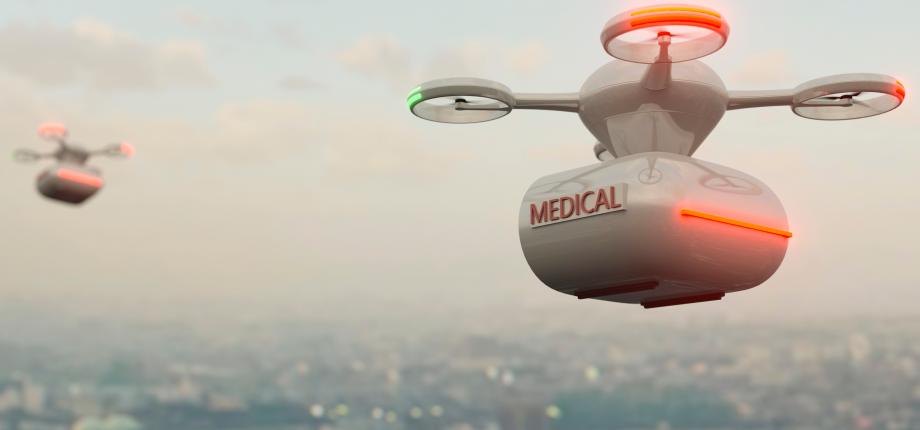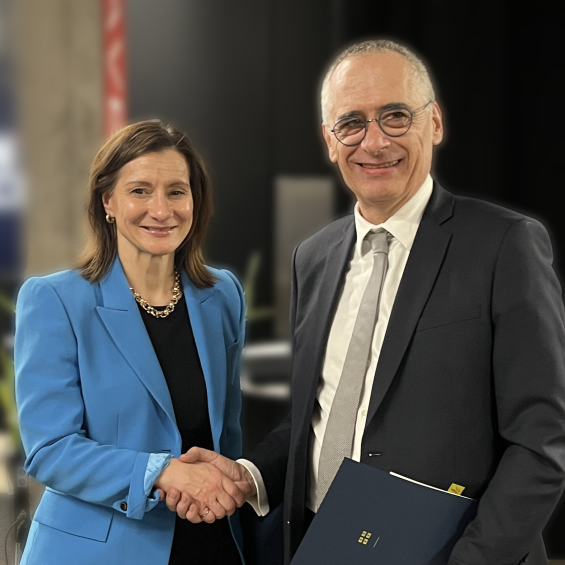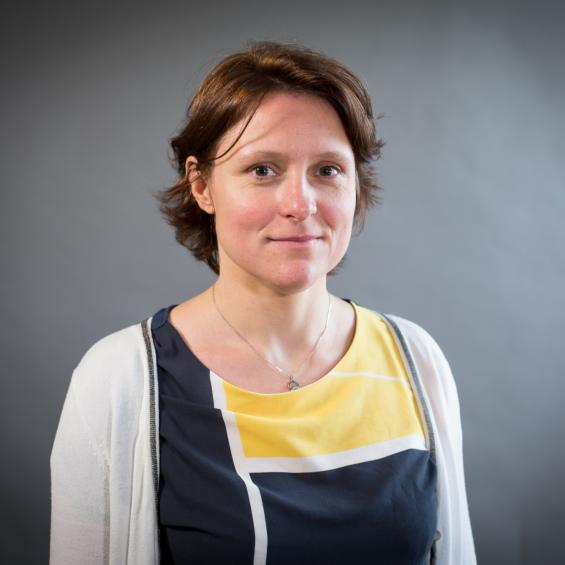Drones in the Service of Health Logistics

The drone market is rapidly expanding, and their use in logistics as a means of transportation offers numerous advantages: speed, expanded connectivity, and a more significant environmental impact, notably contributing to reduced road traffic. However, concerns remain regarding potential security issues, noise pollution, impacts on wildlife, or social issues (job loss, reduced social interactions) associated with this technology.
According to a 2021 study by the European Union Aviation Safety Agency, public opinion regarding drones is more favorable when they are employed in emergency or health situations[2]. Thus, to gain the support of citizens, drones must be used for purposes perceived as virtuous.
Usefulness for health logistics
Among these virtuous uses, drone applications in health logistics are extensive: transport of medications, medical samples, healthcare personnel, patients between hospitals, to patients’ homes, or at accident sites. Examples of applications already exist in Rwanda, for transporting blood bags to remote areas[3], and in Switzerland, for transporting blood samples from hospitals to laboratories[4].
In their study involving over 1000 Danish citizens, Iben Fasterholdt, Mette Praest Knudsen, Nicolai From, and Marianne Harbo Frederiksen show that 89% of respondents have a favorable opinion of drone use in rescue operations, and 68% in the health sector. As explained by Prof. Mette Praest Knudsen, "these results demonstrate the importance of the virtuous purposes of new technologies when implementing them in societies". The study also demonstrates that older individuals are more favorable to these uses than younger people, which “is surprising as we know from research that, with other technologies, younger people tend to express a more positive opinion than older people” according to Prof. Knudsen. “It demonstrates that if you are less exposed to the purpose of a technology, then you are less likely to be positive towards it.” Beyond age, a good knowledge of drones fosters a positive opinion of them and their use, making it crucial for the first uses of drones in society to come with positive experiences for the people.
For a safe and sustainable deployment
The establishment of a legislative framework, whether supportive or restrictive regarding drone use in society, in rural or urban areas, must involve and recognize the public opinion about this technology. This opinion is destined to evolve with the increasing presence of drones in our daily lives.
The authors of this study suggest integrating drones into the public space based on a trial period, and under restricted conditions emphasizing applications in the health domain. Beyond such experiments, the authors point to the importance of interdisciplinary collaboration necessary for supporting and, above all, controlling the deployment of drones in public spaces. As detailled by Prof. Knudsen, “implementation of drones in society represents a rare change in daily logistics and everyday life. Hence, to be successful, all relevant stakeholders must find a common ground for the efforts".
Thus, the efforts of policymakers, both from logistics and health domains, in collaboration with businesses and the general public, could ultimately make drones an essential ally in health logistics.
Study conducted by :
- Iben Fasterholdt – Odense University Hospital, Danemark & Toronto General Hospital Research Institute, University Health Network, Canada
- Mette Praest Knudsen – University of Southern Denmark, Danemark & Chaire Technology for Change, i3-CRG*, École Polytechnique, IP Paris France
- Nicolai From - Odense University Hospital, Danemark
- Marianne Harbo Frederiksen - Odense University Hospital & University of Southern Denmark, Danemark
*I³-CRG : a joint research unit CNRS, Mines Paris - PSL, Télécom Paris, École polytechnique, Institut Polytechnique de Paris, 91120 Palaiseau, France
[1] Iben Fasterholdt, Mette Præst Knudsen, Nicolai From, and Marianne Harbo Frederiksen. 2023. Future healthcare logistics: a survey of the public opinion on drones in Denmark. Drone Systems and Applications. 11(): 1-8. https://doi.org/10.1139/dsa-2022-0050
[2] EASA. 2021b. Study on the Societal Acceptance of Urban Air Mobility in Europe. European Union Aviation Safety Agency (EASA), Cologne, Germany. https://www.easa.europa.eu/en/full-report-study-societal-acceptance-urban-air-mobility-europe
[3] Zipline https://www.flyzipline.com/
[4] Matternet https://www.mttr.net/






















